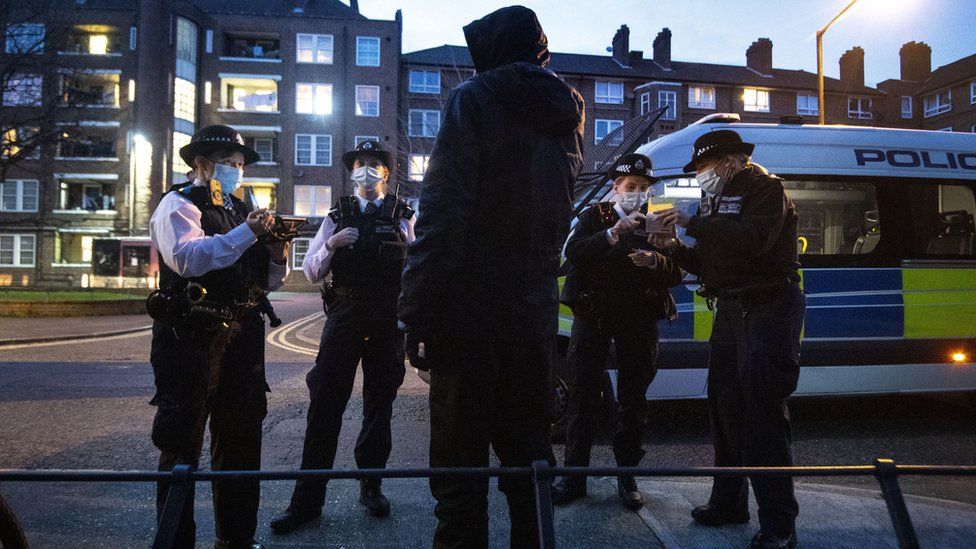ARTICLE AD BOX
 Image source, PA Media
Image source, PA Media
The home secretary has told police leaders to "ramp up" the use of stop-and-search powers to prevent more knife attacks and "save more lives".
In a letter to all 43 forces in England and Wales, Suella Braverman said the "dangerous culture" of carrying weapons "must be brought to a stop".
She also called on forces to publish bodycam footage quickly to stop police facing "trial by social media".
Opponents of stop-and-search say it unfairly targets ethnic minorities.
In England and Wales, police can stop and search an individual or vehicle if they have "reasonable grounds" to suspect the person is carrying a weapon, drugs, stolen property or something that could be used to commit a crime.
Critics say the practice disproportionately targets those from ethnic minorities - particularly black men - and can leave people feeling victimised.
But the government says it is a "common sense policing tactic" and the Met Police has described it as a "hugely important power" for protecting the public.
The government said new data shows more than 100,000 weapons have been removed from Britain's streets since 2019 through a range of tactics - almost half of which were seized in stop-and-searches, which have lead to more than 220,000 arrests.
In her letter, Ms Braverman said: "My first priority is to keep the public safe, and people who insist on carrying a weapon must know that there will be consequences.
"The police have my full support to ramp up the use of stop-and-search, wherever necessary, to prevent violence and save more lives."
Government statistics suggest black people are seven times more likely to be stopped and searched compared with white people.
And campaign groups have previously warned that relaxing restrictions on police use of the power could compound discrimination.
The Home Office said it accepted that black men were more likely to be stopped by police, but that they were also "disproportionately affected" by knife crime.
The home secretary added: "Every death from knife crime is a tragedy. That's why I also back the police in tackling this blight in communities which are disproportionately affected, such as among young black males. We need to do everything in our power to crack down on this violence."
The Home Office called on officers to use available powers to arrest people who unlawfully obstruct stop-and-searches. It said forces should publish footage from body cameras worn by officers quickly to prevent innocent officers from being "subject to trial by social media".
The Home Office also said it was planning to put into law two conditions for using stop-and-search powers.
The department said police should communicate with "the local community" when putting in place Section 60 orders - that is, stop-and-searches that can be carried out without requiring "reasonable grounds".
Police forces can authorise the use of Section 60 orders in set areas - usually a neighbourhood, or sometimes a whole borough - for a defined period of time.
The Home Office also said data on every stop-and-search interaction must continue to be collected for the Home Office to publish for transparency and public scrutiny.
In 2022, the Independent Office for Police Conduct said it was a "legitimate policing tactic", but it was time to "break the cycle" of its disproportionate use, which was causing "trauma" and damaging confidence in policing.

 1 year ago
30
1 year ago
30








 English (US) ·
English (US) ·